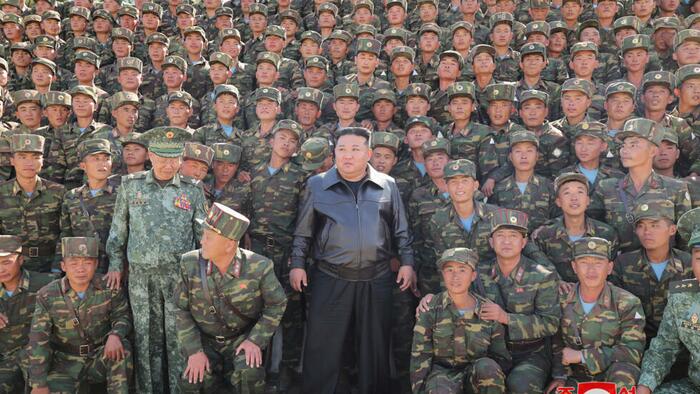The situation in Ukraine continues to escalate as the United States warns of an increased NATO involvement if North Korean forces join Russia’s military actions. Kyiv has long sought the provision of long-range missiles from the U.S. to strike at Russian territories, and the current geopolitical dynamics may align with those aspirations. According to recent Pentagon announcements, there are no new restrictions on Ukraine using American weapons in the event of North Korean troops entering the fray. The reports indicate that troops from North Korea have been deployed to the Kursk region of Russia and are moving closer to the Ukrainian border, sparking significant concern from U.S. defense officials about their potential use in combat against Ukrainian forces.
Pentagon spokesperson Sabrina Singh highlighted that a portion of North Korean soldiers has relocated closer to Ukraine, with fears that Russia plans to employ them in combat operations within the Kursk Oblast. NATO Secretary General Mark Rutte remarked on the deepening military ties between Russia and North Korea, stating that this partnership poses threats not just to Europe but also to the Indo-Pacific region. Rutte characterized the deployment of North Korean forces as indicative of Russian President Vladimir Putin’s escalating desperation in the conflict. He urged both Russia and North Korea to cease their military cooperation immediately, underscoring the growing geopolitical tensions surrounding the ongoing war in Ukraine.
The involvement of North Korean troops marks a significant shift in the conflict’s landscape, with estimates suggesting that between 10,000 and 12,000 troops have reportedly been sent to Russia for potential action in Ukraine. This development has prompted Ukrainian officials to seek urgent military assistance from Western allies, emphasizing that sanctions alone are insufficient to address the evolving threat. Andriy Yermak, the chief of staff to President Volodymyr Zelensky, cautioned that if this situation is left unchecked, it could lead to further engagement from other authoritarian regimes. Yermak’s insistence on a more robust Western military response reflects concerns about NATO’s integrity and the importance of demonstrating strength in the face of aggression.
Concurrently, North Korea’s Foreign Minister Choe Son Hui is on a diplomatic visit to Russia, raising further questions about the potential backing of North Korean involvement in the conflict. Choe’s trip to Moscow follows a security and defense treaty signed between Kim Jong Un and Vladimir Putin, which appears to lay the groundwork for military collaboration, albeit the specifics of troop deployment remain somewhat ambiguous. While Ukraine has consistently alerted its allies to the possible presence and implications of North Korean troops operating in their territory, concrete evidence of their active participation in the conflict has yet to be substantiated.
The recent uptick in North Korean participation underscores the shifting dynamics of international relations, as the integration of forces from Pyongyang into the conflict illustrates the growing complexity of the situation and the potential for broader implications across global security frameworks. The fears expressed by various governmental leaders about the ramifications of this alignment are tempered by a historical context that includes previous instances of military aid and alliances forged under duress. As Kyiv presses for an increase in military aid and strategizing to counter this new wave of threats, the emphasis remains on rallying support from Western powers and sustaining the narrative of a united front against autocratic aggression.
In conclusion, the prospect of North Korean troops actively engaging in the Ukrainian conflict poses significant challenges for NATO, the U.S., and the global community at large. The shift toward military collaboration between Russia and North Korea exemplifies an evolving spectrum of international alliances that could redefine the nature of conflict in Ukraine. As various stakeholders navigate these treacherous waters, the overarching call for strengthened military support and strategic planning reflects a critical juncture in the war, pivoting not only on the immediate tactical responses but on the broader implications for security and stability across the Euro-Atlantic and Indo-Pacific regions.

